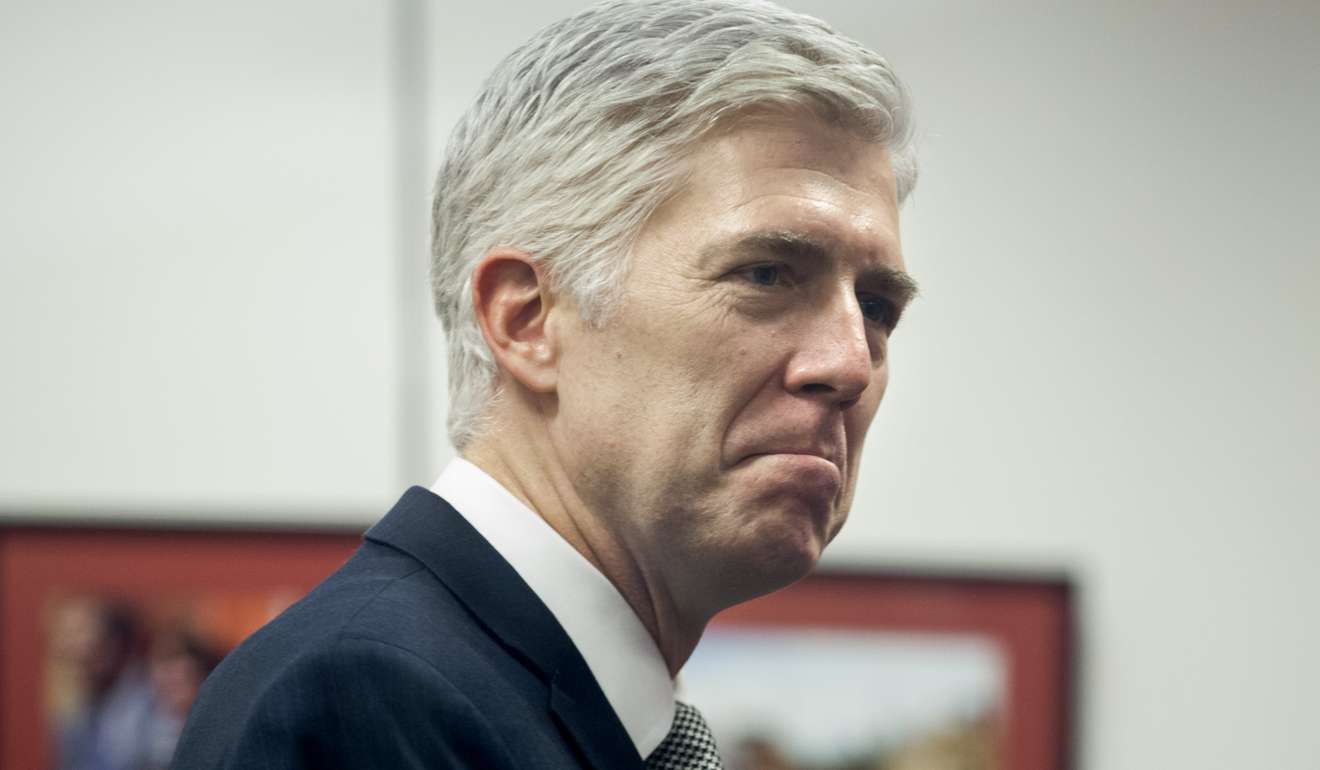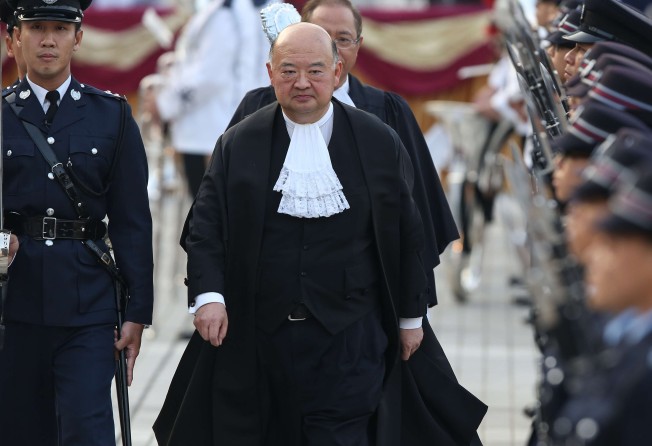
Hong Kong must never let politics taint its judiciary
Grenville Cross says abuse heaped on the judge in the Occupy police assault case should alert us to the dangers of politicisation, as illustrated by battles over the judiciary elsewhere in the world

After then US president Barrack Obama nominated appeals court judge Merrick Garland to replace the late Antonin Scalia on the Supreme Court in March last year, Republican Senate leaders announced they would not consider any nominations during Obama’s last year in office.
Scalia had been a conservative member of the court, and a more liberal replacement could change the court’s ideological balance, and would give Democratic appointees a majority on the court for the first time since 1970. Since Senate approval is required for Supreme Court nominees, Garland’s nomination finally lapsed, without a hearing, on January 3 this year, having been before the Senate for 293 days, twice as long as any other nomination for the Supreme Court.
On January 31, Republican President Donald Trump nominated another appeals court judge, Neil Gorsuch, a leading proponent of originalism in interpreting the US constitution, to fill Scalia’s vacancy. Democratic senators incensed over a conservative filling Garland’s “stolen seat” are inclined to oppose Gorsuch’s nomination.

Such is the level of politicisation that judges are sometimes disrespected. On February 3, for example, after US District Judge James Robart lifted a 90-day executive travel ban on citizens from seven countries, Trump denounced the ruling of “this so-called judge”, and told a conference of police chiefs “the courts seem to be so political”.
However, even in places like Hong Kong where judges are chosen by independent mechanisms, respect for judicial authority is by no means guaranteed, as the crude abuse thrown at the judge who convicted seven police officers of assaulting an activist has illustrated.
In Britain, moreover, after its High Court decided in November last year that Prime Minister Theresa May’s government could only trigger Article 50 of the Lisbon Treaty and start negotiating British withdrawal from the European Union after it had obtained Parliament’s consent, a national newspaper denounced the three judges as “enemies of the people”, bent on thwarting the Brexit referendum result.
Friday's DAILY MAIL: "Enemies of the people" #tomorrowspaperstoday #bbcpapers (via @hendopolis) pic.twitter.com/HUx2E0bQGs
— BBC News (UK) (@BBCNews) November 3, 2016
When judges are selected without regard to politics, the chances of their judgments being accepted will generally be greater, and in this Hong Kong is fortunate. Under the Basic Law’s Article 88, the chief executive appoints judges on the recommendation of the Judicial Officers Recommendation Committee, chaired by the chief justice. Article 92, moreover, stipulates that judges shall be chosen on the basis “of their judicial and professional qualities”. Although, in theory, the chief executive is entitled to veto a recommendation, and even appoint a judge of his own choosing, this, hopefully, will never happen, just as it did not happen before 1997.
The committee has detailed the qualities required for judicial appointment. These include honesty, integrity, industry, independence and intellectual capacity, outstanding competence as a lawyer and professional excellence, mastery of facts and law, vision, drive and leadership qualities, and an ability to work with others and command respect.
At the same time, however, the Basic Law’s Article 90 opens the door to possible political intervention in the appointment of judges of the Court of Final Appeal (including the chief justice) and the chief judge of the High Court. The chief executive must obtain the Legislative Council’s endorsement of these appointments, by way of a resolution of the council. Although the required endorsements have always been forthcoming, the possibility of hotheads seeking in future to flex their muscles, by challenging the credentials of particular nominees, as in the US, is no longer fanciful.
Such challenges could, however, damage the legal system, as the judiciary must always remain above politics to retain credibility. The Judicial Officers Recommendation Committee will already have given the nominated judges a clean bill of health, and this should suffice. Lawmakers must, therefore, always exercise maximum restraint whenever Article 90 is invoked, and avoid politicising the appointment process.
Grenville Cross SC is a criminal justice analyst